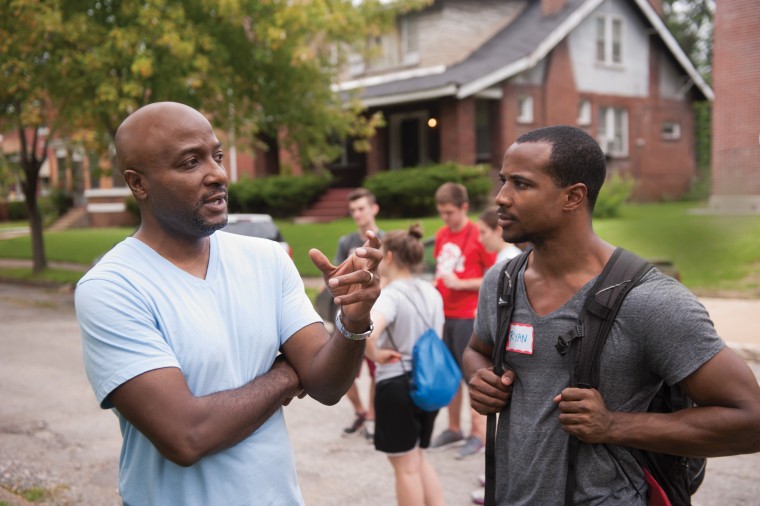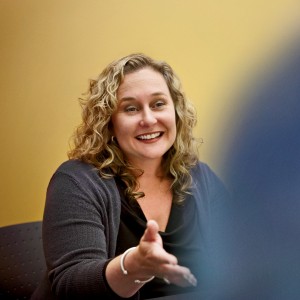When junior Lucy Chin arrived at Washington University in St. Louis, she set a Google reminder to apply for the Civic Scholars Program in 17 months.
“That’s how much I knew I wanted to join this community,” says Chin, who is studying global health and the environment and American culture in the College of Arts & Sciences. “The Civic Scholars I met were so impressive. They were learning about social issues in the classroom, but they were also immersed in the community, doing the hard work.”
The Civic Scholars Program is one of the many ways the Gephardt Institute for Civic and Community Engagement develops engaged citizens and builds strong communities. Celebrating its 10th anniversary, the Gephardt Institute serves as a resource both to community organizations that seek university partnership and to faculty, staff and students who want to collaborate with community organizations for teaching, research and service — to address critical social, economic and other issues.
Amanda Moore McBride, executive director of the Gephardt Institute, says she is particularly proud of the Civic Scholars Program, which just graduated its third cohort.
“When I look at them, I see integrated individuals,” says McBride, the Bettie Bofinger Brown Associate Professor at the Brown School. “None of them say, ‘This is my work; this is my service.’ Rather it’s, ‘This is who I am in the world.’”
Thanks to a recent gift from business and civic leaders Maxine Clark and Bob Fox, the annual cohort of Civic Scholars will expand from eight to 20 students, including a subset of students who will study abroad. As part of the program, Civic Scholars complete two years of related academic course work, receive two years of intensive leadership training and carry out a civic project between their junior and senior year.
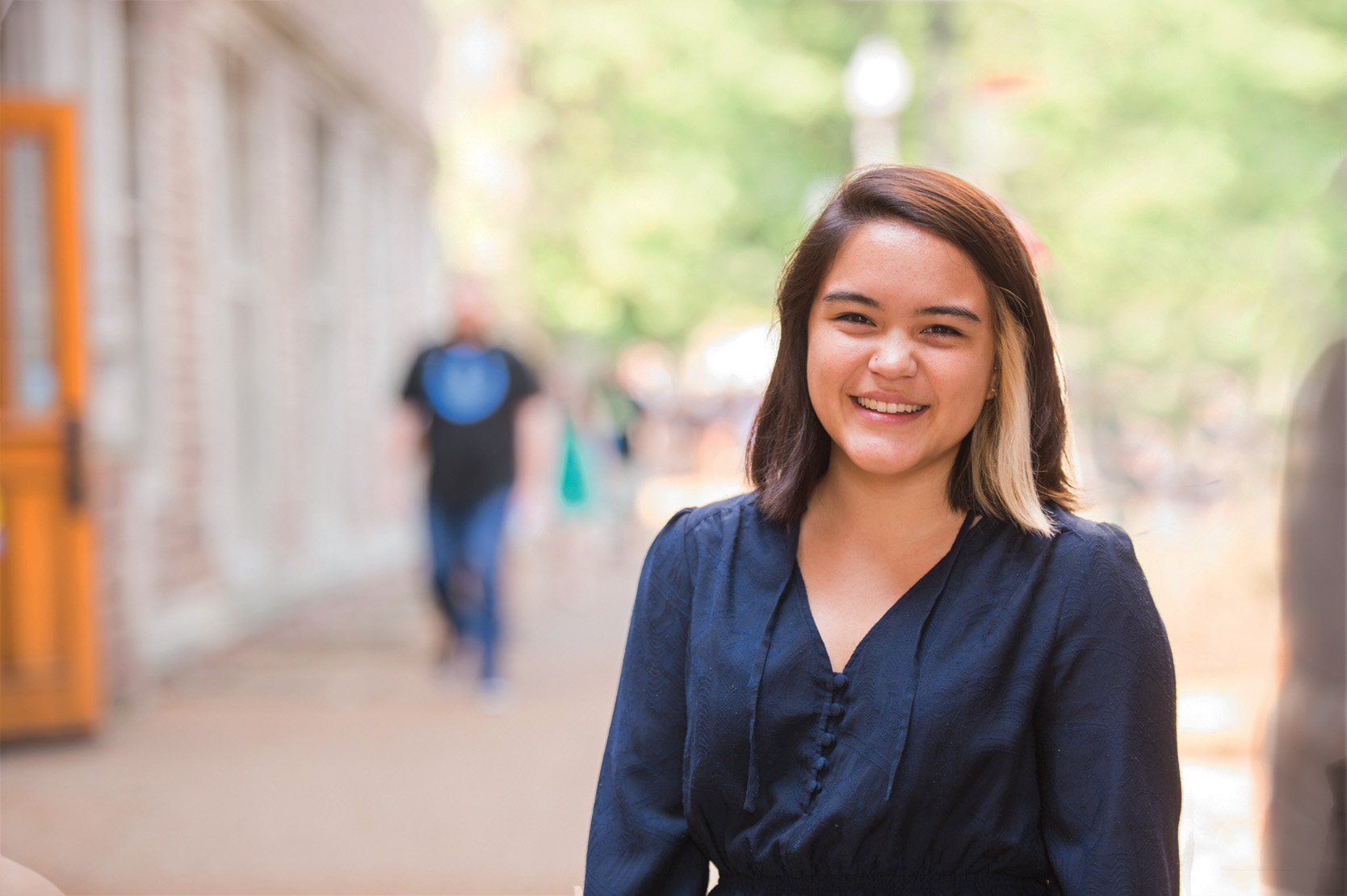
For next summer’s project, Chin will work to improve health-care literacy among low-income St. Louisans. In 2015, she coordinated 34 half-day experiences for Meet St. Louis, a new Gephardt Institute program that introduces freshmen to St. Louis’ neighborhoods, people and issues. Each experience, whether it was a visit to a St. Louis shelter for teenage moms or a tour of the rapidly changing Forest Park Southeast neighborhood, included conversations with civic leaders and time for discussion and dialogue.
“Those parts were key,” Chin says. “We didn’t want students to do a service project and just go back to their dorms; we wanted them to really think about this place that is now their home. What they do next is up to them; engagement can take a lot of different forms.”
To learn about what a few Civic Scholars “do next,” Washington magazine checked in with three members of the inaugural cohort to learn what civic and community engagement means to them.
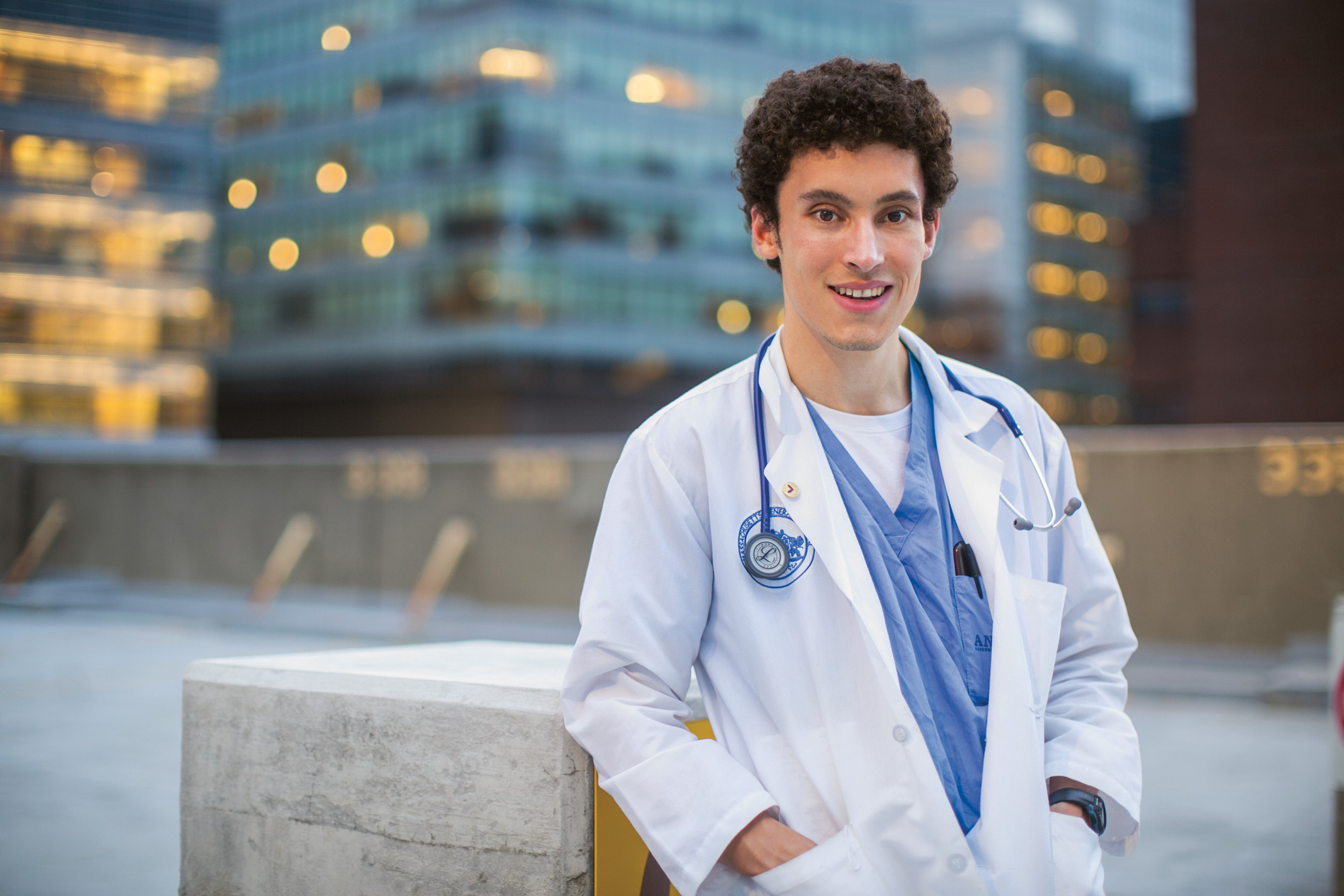
Andreas Mitchell: Building meaningful relationships to make change
Andreas Mitchell, AB ’13 (anthropology), didn’t want to be a Civic Scholar.
“That’s not how I thought of myself,” Mitchell recalls. “To me, the word civics has always had this really boring connotation of bureaucrats and politicians. I didn’t want to be either of those things.”
Friends pushed Mitchell to apply anyway. Mitchell already was a leader in a number of student groups, including the Association of Mixed Students and Connect 4, that promote diversity and dialogue on campus.
Still, he was surprised to be accepted.
“When they interviewed me, they asked me, ‘How will you know if this program has been successful for you?’ Apparently I said, ‘Well, if I read the newspaper every day, that would be a win,’” Mitchell says. “I set the bar pretty low. But that’s where I was — I didn’t really understand what civic engagement meant. I’ve since learned all the different things civic engagement can be.”
Today, Mitchell is a third-year medical student at Harvard Medical School where he is training to be a primary care physician. He does not, in fact, read the paper every day, but he stays informed through a variety of digital media, including daily feeds from NextDraft and the Marshall Project. He has organized a symposium on mass incarceration, has joined advocacy groups that address disparities in health care and has marched in “Black Lives Matter” protests. He considers these so-called extracurricular activities essential to his medical education.
“As a future doctor, I want to learn more about the populations I will be caring for. … I also want to build meaningful relationships.”
Andreas Mitchell
“As a future doctor, I want to learn more about the populations I will be caring for,” Mitchell says. “For instance, I just came from a clinic where my preceptor advocates to the state government on behalf of his patients who are heroin users in order to send them home with Narcan, so they won’t die of an overdose. That’s civic engagement. I would not have known what to call this when I arrived at college or how to go about participating, but the Civic Scholars Program showed me the path. It now permeates every part of my life.”
Originally from suburban Baltimore, Mitchell is considering work on the decriminalization of mental illness and prison diversion. He also is applying for internships in health advocacy, and he hopes to earn a graduate degree in public policy from the John F. Kennedy School of Government at Harvard before entering his final year of medical school.
“I want to be a primary care physician, but I also want to build meaningful relationships wherever I live and get involved in city or state government,” Mitchell says. “I think that would be a meaningful way to make change not only in my patients’ lives but also in the community.”
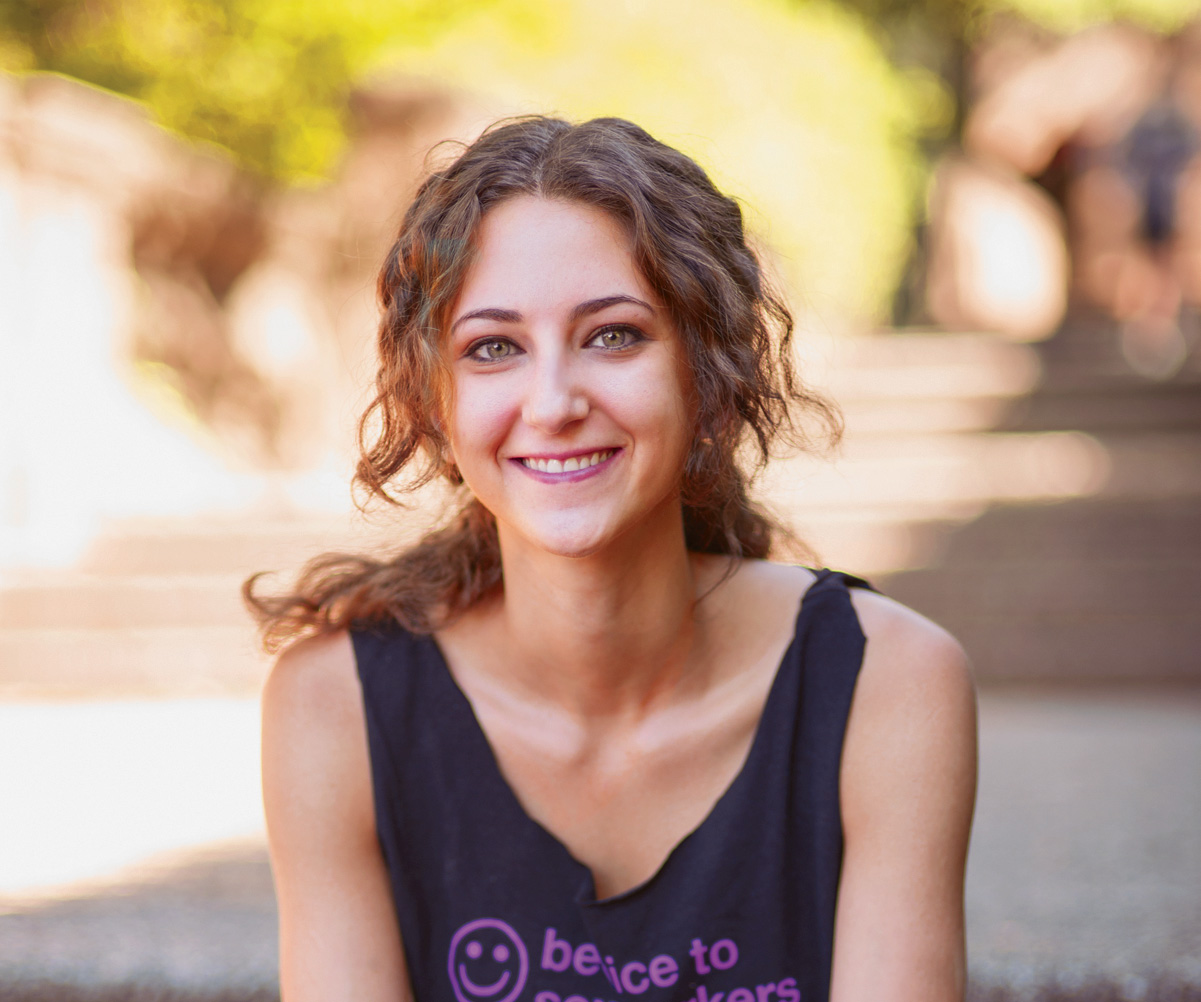
Pia Marcus: Supporting people where they are
Pia Marcus, AB ’13 (international studies and public health), has changed diapers at an orphanage in Morocco, facilitated sexual health education for youth in Uganda and worked with family farmers with malnourished children in Rwanda. But as protests erupted in Ferguson, Missouri, and beyond, Marcus wondered about conducting social justice work in America.
“The issues that I care about most were being debated miles and miles away,” says Marcus, then in Rwanda. “It made me think very hard about my role in my own country.”
So Marcus, a native of New York City, returned this summer to work as a Global Health Corps Fellow at HIPS, which provides clinical and social services to sex workers and injection drug users in Washington, D.C. She coordinates the efforts of some 100 volunteers and travels day and night across the city in the HIPS van, distributing condoms, syringes and other safe-sex and injection equipment.
“We are focused on harm reduction, which is very different from a lot of international work where success is measured in lives saved.”
Pia Marcus
“We are focused on harm reduction, which is very different from a lot of international work where success is measured in lives saved,” Marcus says. “We take a nonjudgmental approach — people are going to do what people are going to do. So we support them where they are, whether that’s providing a condom or counseling. We can also be that first entry point into more supportive care, whether that’s connecting them to our in-house case management team or to another organization that can help them find a home or enter a rehab program. But our primary goal is to provide individuals with the resources and knowledge to reduce the risk of their behaviors.”
Marcus calls her HIPS fellowship a crash course in our nation’s failure to address inequities in our schools, workplaces and courts; her teachers are the drug users and sex workers she serves.
Marcus says the Civic Scholars Program taught her that meaningful engagement isn’t just doing; it’s also listening.
“Learning the life stories of the drug users and sex workers I work with is helping me better understand the intersectional challenges that individuals face and think thoughtfully about ways to help,” Marcus says. A new friend and co-worker, who was in prison for 37 years, is a former IV drug user. “He has had a totally different life in a totally different America from the one I have experienced,” she says. “He has helped me realize that it’s one thing to read about systemic oppression in the abstract, but it’s very different to have relationships with people who have lived that experience.”
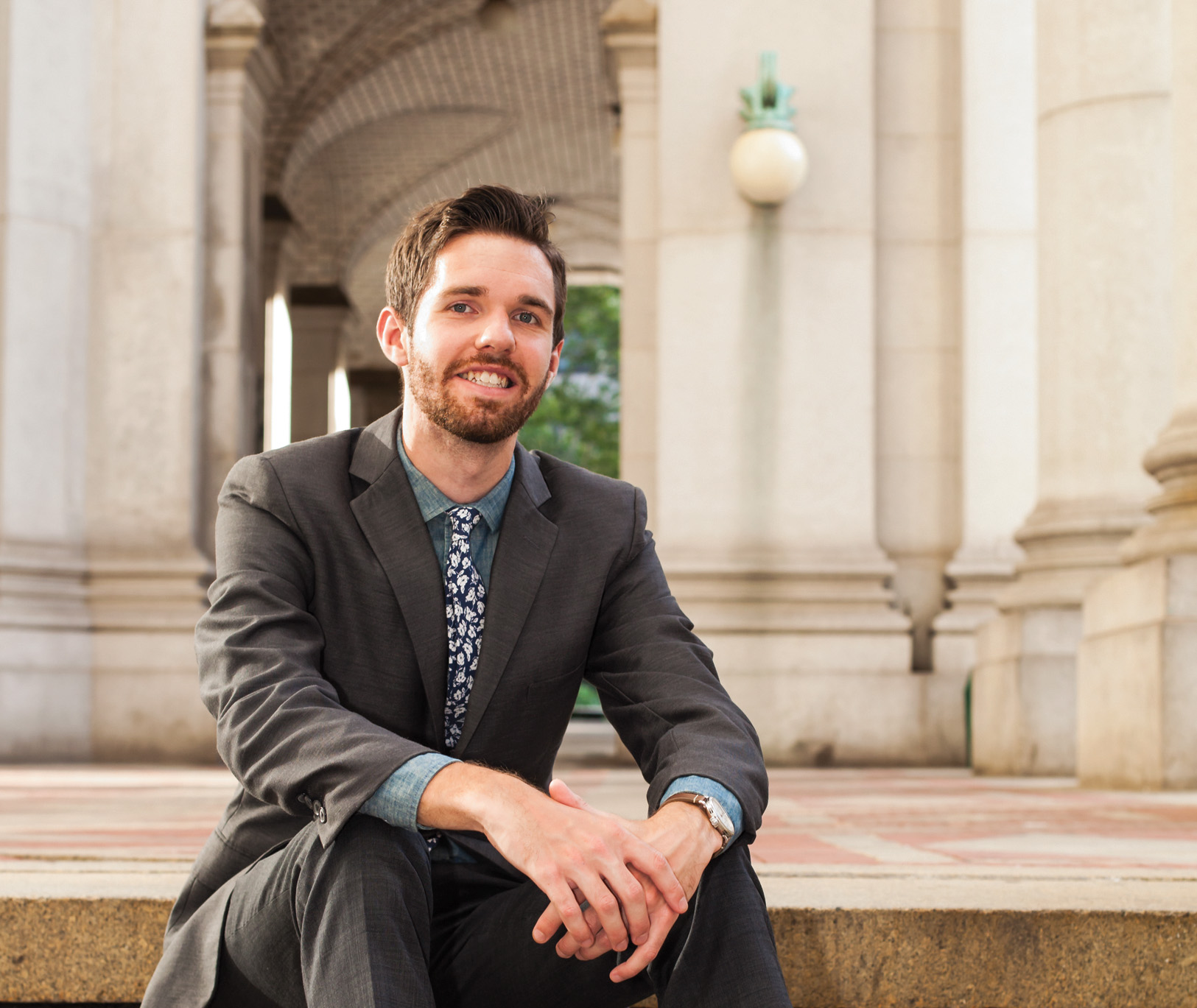
Peter Birke: Exploring ‘what a progressive city looks like’
Peter Birke, AB ’13 (economics), works in the Innovation and Strategy office of New York City’s Department of Small Business Services, which studies emerging economic development issues for the city. He is part of a strategic planning team that conducts research on challenges facing job seekers, small businesses and neighborhoods.
“You are looking at difficult puzzles with no clear answers; I think that’s the nature of policy work and government,” Birke says. “It is hard, but also very, very rewarding because you are impacting people’s lives.”
Birke says that all sorts of interesting tensions exist. “Our job is to study the economic indicators and then talk with the stakeholders to see what sort of levers we have at our disposal to make an intervention,” Birke explains. His studies in economics prepared Birke to analyze the data. But his tenure as a Civic Scholar working with the St. Louis County government taught him the value of talking face-to-face with community members.
“We learned that you have to have that intellectual curiosity and eagerness to learn from others. That is one thing that unified all of us, no matter our background or interests.”
Peter Birke
“We learned that you have to have that intellectual curiosity and eagerness to learn from others,” Birke says. “That is one thing that unified all of us, no matter our background or interests.”
After graduating from Washington University, Birke was selected as a New York City Urban Fellow where he studied the history and challenges of New York. He then worked at the city’s parks department before joining the newly created Innovation and Strategy office. Birke says New York City is a great laboratory to test innovative ideas.
“I pursued this job in part because I wanted to understand how the same dynamics that I thought about while working in St. Louis County played out in a very different metropolis,” Birke says.
“Because New York is at the forefront of a lot of policy issues, we have the chance to really explore what a progressive city looks like,” says Birke, who is from Madison, Wisconsin. “And because this city is such a bellwether in urban policy, a lot of the work we do here can help other cities.”
Birke says he plans to stay in New York for now. He supports Mayor Bill de Blasio’s vision for “a more equal New York” and likes working with other civically engaged graduates. He eventually plans to earn a graduate policy-related degree before moving to another great American city — perhaps back to St. Louis.
“I’ve come to consider St. Louis my second home,” Birke says. “It’s a very different place from New York, but like New York, it has an amazing history and terrific neighborhoods, architecture and people.”
